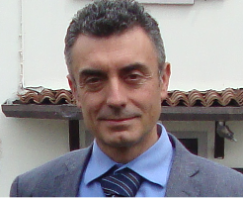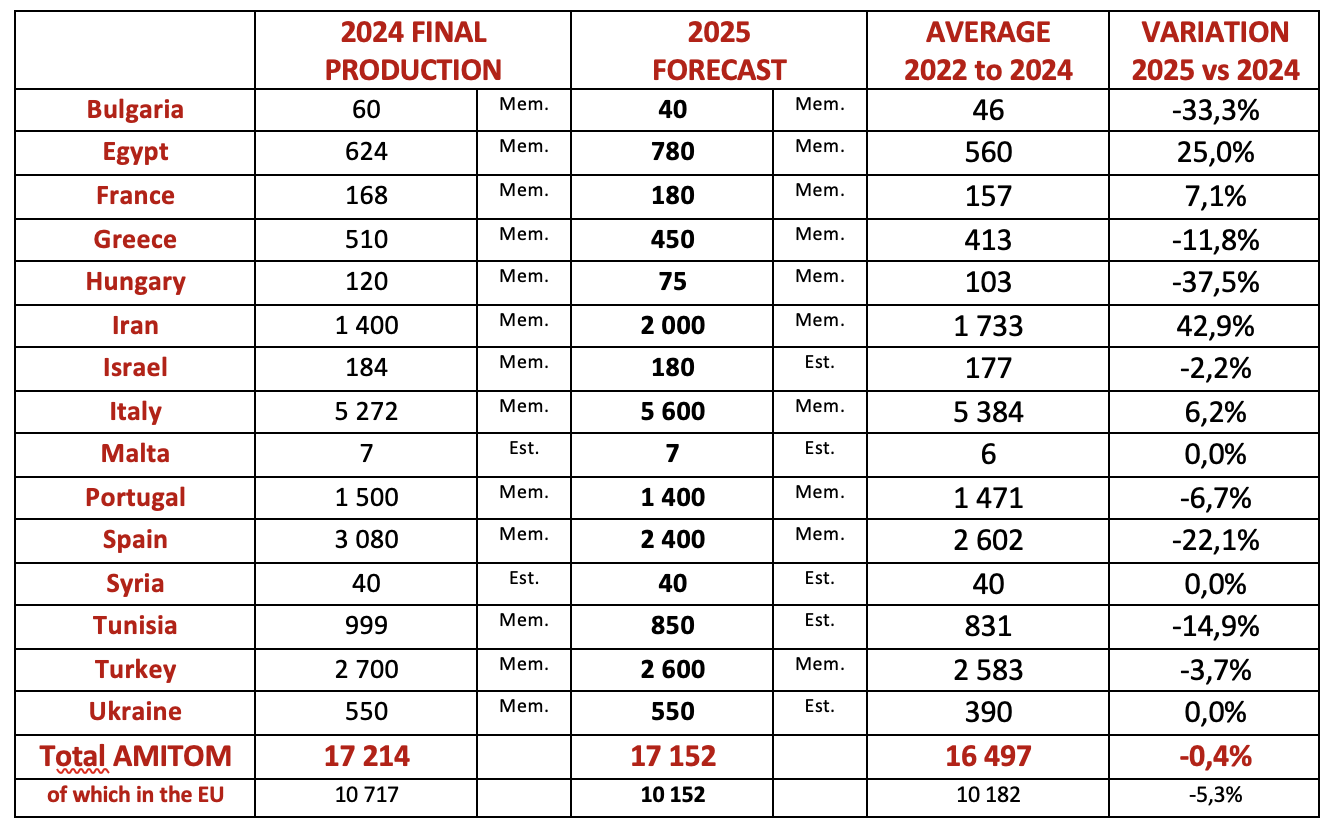During its annual general meeting held in Rome on 17 January 2025, AMITOM elected Antonio Casana (Solana SpA, Italy) as his new President, and Dimitris Nomikos (D. Nomikos, Greece) as Vice-President.
Antonio Casana was born in Italy in 1966 and graduated in Agricultural Science from the Universita Cattolica del Sacro Cuore in Piacenza (Italy) in 1991, where he did his dissertation on tomato genetics. He began his career as a Quality Assurance Manager for a company processing and canning tomatoes and other vegetables between 1993 and 1999, then was an administrator of Suncan, a fruit processing company from 1999. Since 2003, he has been with Solana SpA, a leading tomato processing firm in Italy, initially as General Manager, and since 2013 as CEO. Between 1996 and 2004 he was also a contract professor on Food technology at the Universita Cattolica del Sacro Cuore in Piacenza-Cremona.
Antonio is President of the vegetable product sector at UIF (Unione Italiana Food), member of the BoD Anicav and President of the Sustainability committee of TomatoEurope of which he is a past President.

2025 production forecast in the AMITOM countries (in thousand metric tonnes):

Members also discussed their first forecast for the 2025 season. The total estimate for the region is currently very close to 2024 final production with a total of 17.15 million tonnes expected, but it is too early to have a precise estimate as discussions with farmers are ongoing.
Several countries including Spain, Greece, Bulgaria and Hungary are expecting a significant reduction in the volume processed, with smaller reductions also expected in Turkey and in Portugal where discussions with growers are complicated this year.
Other countries like Italy, Iran or France are on the contrary hoping for an increase after a reduced 2024 crop. In Italy the rise will mostly be in the North to compensate for the large reduction in 2024, while in the South, production may actually be lowered due to worries regarding water availability with the level of the Occhito dam currently worrying low. In Egypt, where the winter crop is currently at its peak and planting for the summer crop already starting, a significant increase in volume is expected.
